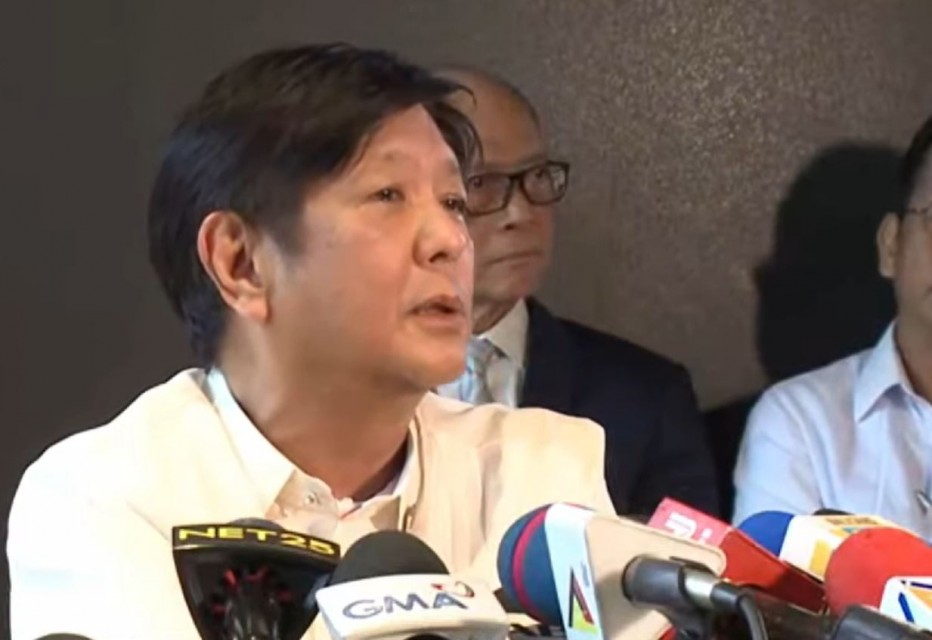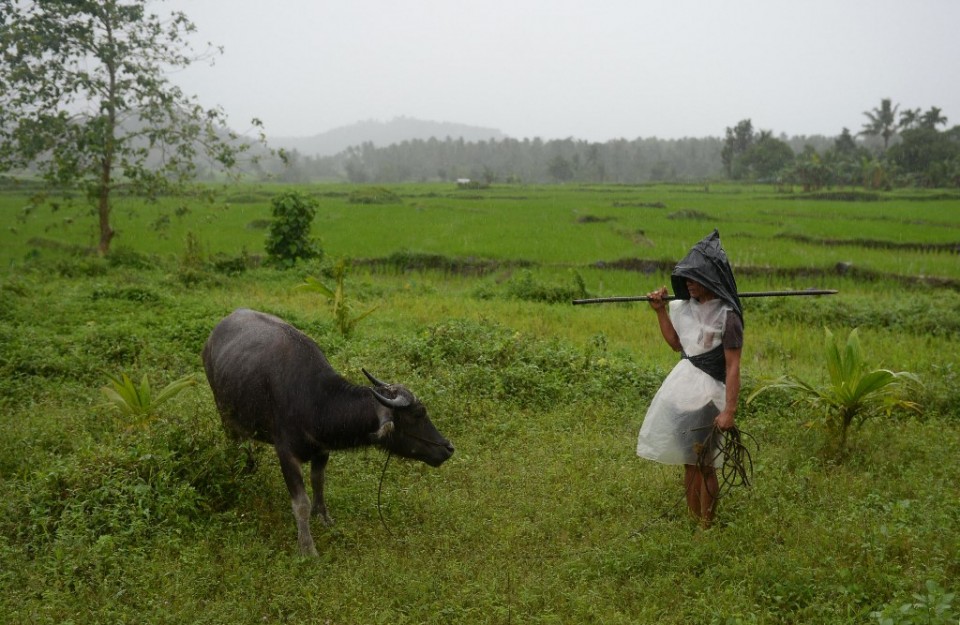Taking DA’s helm only temporary, says Marcos Jr, until he reorganizes the dep’t to to make it more responsive after post-pandemic era and amid crisis in Ukraine

Problems in agriculture “severe enough” that he decided to take the portfolio of DA Secretary, he says
(Eagle News) – President-elect Ferdinand “Bongbong” Marcos Jr., announced on Monday, June 20, that he will be temporarily head the Department of Agriculture upon his assumption in office as the 17th President of the country on June 30, in an effort to avert what he sees as a likely food crisis that has to be addressed immediately.
In a press briefing, Marcos Jr., said that he plans to “go back to the basics” as he forecasts that food supply would become a very important issue in the coming years, especially in the post-pandemic economy, and with the continuing conflict in Ukraine that gad affected not just food prices, but fuel prices as well.
The President-elect said that the events in Ukraine have affected the food supply, not only in the Philippines, but all over the world “in a very serious way” that food prices are being affected.
Marcos said that he would lead the agriculture department “at least until we can reorganize” the said department to prepare it for the next few years.
-Restructuring the DA-
“As to agriculture, I think that the problem is severe enough that I have decided to take on the portfolio of Secretary of Agriculture at least for now. And at least until we can reorganize the Department of Agriculture in the way that it will make it ready for the next years to come,” the President-elect said.
He said “we’re going to basics” and “rebuild the value chain of agriculture.”
“And that is why it’s important that the President take that portfolio,” he said.
Marcos said that “agriculture is a very critical part” of the post pandemic economy, and foresees “an increase in the food prices in the next quarters.”
He said that they have already been studying at length about the measures that have to be taken to address possible emergency situations regarding food supply, such as a possible food shortage due to the “outside forces” such as the war in Ukraine that has an impact on the global food supply. The Russia-Ukraine conflict has also had a direct impact on fuel prices as many European countries, as well as the United States, have imposed restriction on Russian fuel and energy.
“We spoke at length about the measures that we will have to take because we are forecasting that there will be a shortage, or there will be an increase in food prices in the next quarters that will come, simply because of the outside forces that have been impacting upon the food supply, and upon the supply of feeds,” he explained.
-Marcos says agriculture to be a top priority of his gov’t-
During the regime of the late President Ferdinand Marcos, the President-elect’s father, agriculture was a top priority and was the focus of administration that enabled the Philippines to be rice-sufficient for the first time.
Because of the rice production programs in the early years of the Marcos administration, particularly after 1965, the Philippines exported rice for the first time in 1968.
Now, Marcos Jr., plans to take the helm of agriculture and restructure the DA, as well as immediately address emergency needs regarding food supply.
He said he is doing this “to make it clear to everyone” that agriculture is a “high priority” of his administration, and also “as a practical matter, so that things move quickly.”

-Immediate action needed-
“Because the events of the global economy are moving very quickly. We have to be able to be agile. We have to be able to respond properly in a measured way, as soon as there is a situation that needs to be addressed,” he said.
President-elect Marcos said he has also instructed his economic team to make economic forecasts as to the scenarios that the country would face with the ongoing crisis in Ukraine, aside from other issues. Global warming or climate change has also had an impact in the global food supply.
He said that the development of the economy would be “focused kind of effort.”
“We are not so well funded that we can cover all the different areas and all the different sectors of the economy. So we will be very focused, we will be very focused,” he said.
-Retooling, restructuring the DA-
Marcos said that there has to be changes made in the DA, including retooling, and studying what are not working anymore. But this is a long-term move.
“As I have mentioned many times before, many of the agencies have changed their function over the years, and maybe it’s time to return them,” he said.
He mentioned the National Food Authority (NFA) and the FTI or the Food Terminal Incorporated. The NFA was formed during the administration of the late President Marcos with the original mission to promote the integrated growth and development of the grains industry. The FTI was originally called the Greater Manila Terminal Food Market (GMTFM) when it was established in April 1968, and then renamed to the Food Terminal Incorporated (FTI) in March 1974. It was also a priority project of then President Ferdinand Marcos to revolutionise the agricultural sector of the country, and establish a food consolidation center.
“We have to restructure the actual department so as to be more responsive to the local situation now when it comes to food,” he said of the planned DA restructuring.
-Increasing food production-
But the immediate priority is to increase production of food, especially with the coming rainy season, increase the harvest, and address problems during, before and after the rainy season.
“There are many priorities we have to attend to simultaneously. First of all will be increased production, as we come into the planting period, the harvest period after the rainy season, during before and after the rainy season,” he said.
“Hopefully, we can counter some of the increases in prices,” he said.
He noted that Thailand and Vietnam, the top two countries where the Philippines imports its rice, have decided to “ban their rice exports at least for now.”
“So we have to compensate for that hopefully by increasing production here in the Philippines,” Marcos said.
During the administration of Marcos Jr’s father, the late President Marcos, various agricultural programs meant to make the Philippines rice sufficient were launched.
One of these was the so-called “Masagana 99” which was launched in 1973 when the country was experiencing a rice supply shortage. This eventually resulted in the country becoming rice self-sufficient in 1975 to 1976. In 1977 to 1978, the country exported rice to its neighboring countries.
(Eagle News Service)







